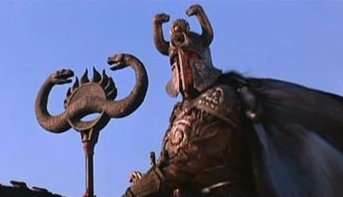From Our Oriental Heritage page 642:
We must not, through blur of distance, exaggerate the homogeneity of this culture, or of the Chinese people. Some elements of their early art and industry appear to have come from Mesopotamia and Turkestan; for example, the neolithic pottery of Honan is almost identical with that of Anau and Susa. The present “Mongolian” type is a highly complex mixture in which the primitive stock has been crossed and recrossed by a hundred invading or immigrating stocks from Mongolia, Russia (the Scythians?), and central Asia. China, like India, is to be compared with Europe as a whole rather than with any one nation of Europe; it is not the united home of one people, but a mdeley of human varieties different in origin, distinct in language, diverse in character and art, and often hostile to one another in customs, morals and government.
More modern Chinese histories that I read do not, erm, highlight this.
Of course, taken from that perspective, one wonders how much of the coming century’s history will deal with nations that are groups of differing tribes that might devolve. The Soviet Union being the earliest example, but this might include China, the United States, and the European Union. Perhaps we’re not looking at a world war, but rather a series of civil wars as nations break apart.



